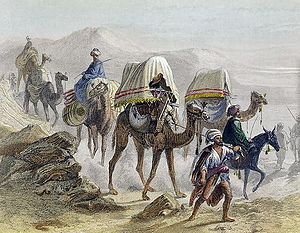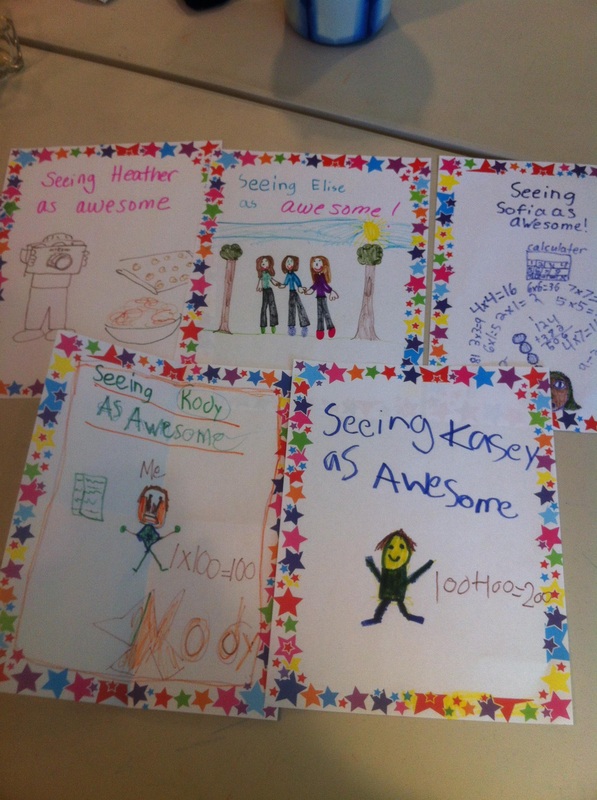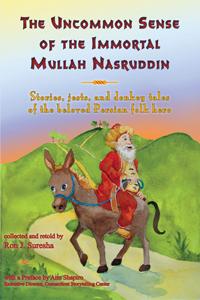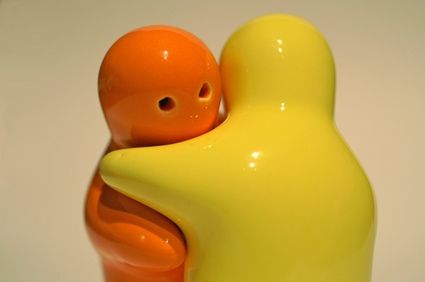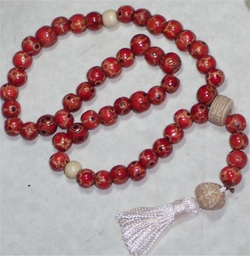Moral Tales Class Page
lesson 13: justice for all
|
Riches that leave another poor I do not want. — Andre Gide
This session teaches children about injustice and inequality in our world, and the importance of working for justice. Participants will hear a story about a kingdom in which many people do not have enough food. A dog that is larger-than-life comes to the palace and refuses to stop barking until the king has redistributed the wealth and everyone in the land has been fed. |
Lesson 12: Making a difference
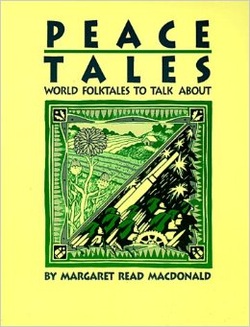
I am only one, but still I am one. I cannot do everything, but still I can do something. And because I cannot do everything, I will not refuse to do something that I can do. — Edward Everett Hale
This session introduces the concept of responsibility. It reinforces the ideas in the seventh Unitarian Universalist Principle, respect for the interdependent web of all existence, by demonstrating the idea that our action or lack of action makes a difference in an interdependent world. It encourages the children to feel empowered to take action when love, faith and conscience call.
This session introduces the concept of responsibility. It reinforces the ideas in the seventh Unitarian Universalist Principle, respect for the interdependent web of all existence, by demonstrating the idea that our action or lack of action makes a difference in an interdependent world. It encourages the children to feel empowered to take action when love, faith and conscience call.
Lesson 11: Do No Harm
|
Non-violence is not a garment to be put on and off at will. Its seat is in the heart, and it must be an inseparable part of our very being. — Mohandas K. Gandhi
This session introduces non-violence as an aspect of goodness which is integrally connected with justice. While children are more ready to understand the expressions of violence and non-violence than the inner conditions that create these expressions, this session address both inner spiritual peacefulness as well as peaceful relationships within the world. As suggested by the 1948 quotation from Mohandas Gandhi which opens this session, you cannot have one peace without the other. |
Lesson 10: Footprints: treading softly on earth
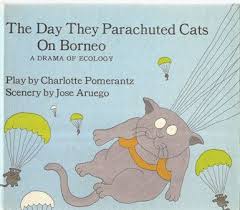
When one tugs on a single thing in nature, he finds it attached to the rest of the world. — John Muir
In today's world, one cannot speak of morality, goodness and justice without considering human impact on the Earth. The Unitarian Universalist Principles and Purposes promote and affirm both an attitude of respect and actions that honor the interdependent web of life of which we are a part.
In today's world, one cannot speak of morality, goodness and justice without considering human impact on the Earth. The Unitarian Universalist Principles and Purposes promote and affirm both an attitude of respect and actions that honor the interdependent web of life of which we are a part.
Lesson 9: Generosity: Give and ye shall receive
|
Giving brings happiness at every stage of its expression. We experience joy in forming the intention to be generous, we experience joy in the actual act of giving something, and we experience joy in remembering the fact that we have given. — Buddha
This session introduces generosity as an important spiritual discipline and religious act that is a central component of justice and goodness. It is based on the notion that generosity is a way of life which reaps benefit for both giver and receiver |
Session 8: Do Unto Others
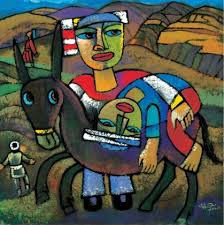
This session promotes the Golden Rule, "Do unto others as you would have them do unto you," and the suggestion from scripture to "Love thy neighbor as thyself." The central story, "The Good Samaritan" from Christian scripture, guides exploration of what it means to "love thy neighbor" and helps raise the idea that our "neighbors" include everyone in the world.
The session promotes two Unitarian Universalist Principles, the inherent worth and dignity of all people; and justice, equity and compassion. The words "Golden Rule" will be added to the Moral Compass poster.
The session promotes two Unitarian Universalist Principles, the inherent worth and dignity of all people; and justice, equity and compassion. The words "Golden Rule" will be added to the Moral Compass poster.
session 7: seeing others with awe
|
In "Moral Tales," a Tapestry of Faith program
To enter into the presence of another human being ... is to enter into the presence of God in a new and different way. — Stephen L. Carter Drawing upon the first Unitarian Universalist Principle, which affirms the inherent worth and dignity of all people, this session rests on the idea that goodness and justice require more than tolerance of diversity. Children are given guidance to actively embrace differences as they learn to see others — indeed, all living beings — with awe. "Respect" is added to the Moral Compass in this session. When we see another with awe, our respect for him/her is activated. Justice and goodness will surely follow. Part of the day included Awesome Portraits |
Session 6: Welcome One and all
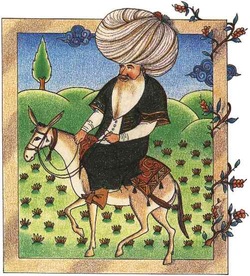
For I was hungry and you gave me food, I was thirsty and you gave me something to drink, I was a stranger and you welcomed me. — Christian scripture, Matthew 25:35
This session is based on the notion that justice and goodness require an attitude of radical hospitality towards all others, regardless of race, class, or creed.
Participants will hear a Middle Eastern folk tale about Mullah Nasruddin, who arrives at a dinner party in farming clothes only to be ignored. After changing into fancy clothes, he is greeted warmly and welcomed wholeheartedly. Nasruddin proceeds to feed his coat, proclaiming it is the garments that have been welcomed, not the person wearing them.
This session is based on the notion that justice and goodness require an attitude of radical hospitality towards all others, regardless of race, class, or creed.
Participants will hear a Middle Eastern folk tale about Mullah Nasruddin, who arrives at a dinner party in farming clothes only to be ignored. After changing into fancy clothes, he is greeted warmly and welcomed wholeheartedly. Nasruddin proceeds to feed his coat, proclaiming it is the garments that have been welcomed, not the person wearing them.
|
The story for Session 6 comes from wisdom tales centered on Mullah Nasruddin. Nasruddin lived in the 13th century in what is now Turkey. In the stories where he is the central figure, Nasrudin is sometimes portrayed as a populist philosopher and wise man and sometimes as a wise fool or the butt of a joke. There are thousands of Nasruddin stories. He is claimed by many ethnic groups across the Muslim world. To read the story from Session 6 , follow the link below:
|
session 5: Forgiveness
|
If we could read the secret history of our enemies, we would find in each person's life, sorrow and suffering enough to disarm all hostility. — Henry Wadsworth Longfellow
This session introduces the concept of forgiveness. In our quest to discover what is morally good and just, forgiveness gives us an invaluable tool for strengthening our relationships and choosing compassion. It helps us identify the actions that we take that will lead to connection with others and those that may foster to bitterness. It reminds us of our similarities with one another and empowers us to keep our covenant with one another in our faith communities. It speaks to the third Unitarian Universalist principle of: acceptance of one another and encouragement of spiritual growth. |
session 4: In another's shoes

To explore the experience of empathy is to understand more deeply the first Unitarian Universalist principle: the inherent worth and dignity of all people (and all beings.) The Merriam-Webster online dictionary's definition of "empathy" includes "the action of understanding, being aware of, being sensitive to, and vicariously experiencing the feelings, thoughts, and experience of another." Empathy is the necessary action behind love, forgiveness, compassion and caring, and the driving forces of most good works in our world.
This session introduces empathy as a tool for discerning good and just action. It also guides children to recognize and respect multiple perspectives, and to understand that any given scenario can have multiple truths.
This session introduces empathy as a tool for discerning good and just action. It also guides children to recognize and respect multiple perspectives, and to understand that any given scenario can have multiple truths.
session 3: faith, hope and prayer
|
Who cared if there was really any Being to pray to? What mattered was the sense of giving thanks and praise, the feeling of a humble and grateful heart. — Oliver Sacks
This session introduces faith, hope and prayer as tools that can help us discern the path of goodness and justice. Participants will hear a story in which a shah decides to test a poor Jewish man's faith and creates challenges for him to face. Through prayer, the Jew expresses his trust in God and finds answers to each dilemma created by the shah. Ultimately, the poor man teaches the shah the value of a faithful life. |
Session 2: Conscience: Hearing the Inner Voice
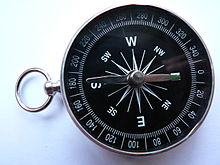
On 29 September the class completed, signed and posted their class covenant and began Session 2 "Conscience: Hearing the Inner Voice".
Why look for truth in distant lands? Seek it in the depths of your own heart. — Buddhist saying, adapted
In session 2 , children are introduced to their own conscience as an inner voice that can guide them to make choices that effect goodness and justice. The quote that opens this session comes from Kindness: A Treasury of Buddhist Wisdom for Children and Parents by Sarah Conover (Boston: Skinner House, 2010). Session 2 continues through 6 October.
The story from this session 2, "The Wise Teacher's Test" is available here:
Why look for truth in distant lands? Seek it in the depths of your own heart. — Buddhist saying, adapted
In session 2 , children are introduced to their own conscience as an inner voice that can guide them to make choices that effect goodness and justice. The quote that opens this session comes from Kindness: A Treasury of Buddhist Wisdom for Children and Parents by Sarah Conover (Boston: Skinner House, 2010). Session 2 continues through 6 October.
The story from this session 2, "The Wise Teacher's Test" is available here:
session 1: we are all one
|

The first session of Moral Tales worked on a class covenant, the story for Session 1 "We Are All One" (link to the story below) and went out to our spiral garden as part of the Bugs Nature Walk activity.
When the covenant is finalized it will be posted here as well as in the classroom.
To extend and deepen the lesson and explore the topics covered in Session 1, please click on the links below.
When the covenant is finalized it will be posted here as well as in the classroom.
To extend and deepen the lesson and explore the topics covered in Session 1, please click on the links below.


